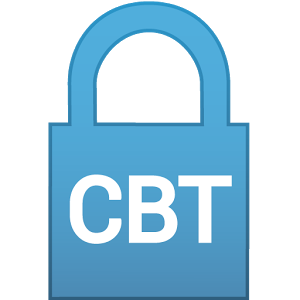“Make not your thoughts your prisons”
— William Shakespeare
“You are today where your thoughts have brought you; you will be tomorrow where your thoughts take you.”
— James Allen, author of the 1902 classic, “As a Man Thinketh”
“The mind is everything. What you think you become.”
— Buddha
Changing the way you think can accelerate your recovery from addiction. That’s the central tenet of Cognitive Behavioral Therapy (CBT) — a treatment that’s well-proven to help people with substance abuse disorders.
CBT is a form of psychotherapy that emphasizes how our thoughts can have a profound impact on our behaviors. CBT teaches practical skills and strategies to help people reframe negative self-talk, cope more effectively with cravings and break habits that lead to addiction relapse.
“Many, many studies and meta-analyses have concluded that CBT is an empirically validated, or evidence-based therapy,” says Dr. Kathleen Carroll, Albert E. Kent Professor of Psychiatry at Yale University School of Medicine and Principal Investigator of the Psychotherapy Development Center as well as Principal Investigator of the New England Node of the Clinical Trials Network, both funded by the National Institute on Drug Abuse (NIDA).
Like learning to ride a bike, CBT requires lots of practice in new skills that eventually become second nature, Carroll says. “Compared to other approaches, its effects tend to be durable, in that we often see a ‘sleeper effect’ — that is, individuals continuing to hold on to, or even increase the benefits of treatment after they leave treatment.”
CBT Cracks Faulty Thinking
Using CBT, people in recovery learn to identify and correct “cognitive distortions” before a downward spiral ensues. For example, someone who is distressed and on the verge of drug relapse might engage irrational beliefs such as:
“Everybody hates me.”
“I’m a loser if she won’t go out with me.”
“My son is struggling in school. I must be a bad parent”.
“I’ll probably get fired if I make a mistake at work.”
CBT teaches more objective ways of interpreting these negative thought patterns — and how to develop healthier responses. Since many people fighting addiction have co-occurring mental health issues, CBT skills can also help them reduce anxiety and depression.
As a treatment for addiction, CBT is a short-term intervention — typical sessions last 12 to 16 weeks. The focus is on acquiring new cognitive skills and changing behaviors that fuel substance abuse.
“In CBT, we help people think different,” Carroll says, “to recognize the situations that are high-risk for drug and alcohol use, to set up your life to avoid those situations as much as possible, and to know how to act and think more effectively so you can avoid drugs and alcohol and keep your goals in sight.”
You can apply CBT principles to the details of daily life — from how you get to work, to whom you spend time with, or whether or not you have solid plans for your down time. “It’s striking how a little practice at thinking through mini-decisions makes life so much easier, as you’re heading off riskier decisions down the line,” Carroll says.
Coping with Cravings
Intense cravings for drugs and alcohol can often trigger a relapse. CBT addresses these urges through strategies such as talk therapy and mindfulness techniques.
Like other chronic diseases, addiction has a high relapse rate; an estimated 40-60 percent of people abuse drugs or alcohol in their first year after rehab, according to the National Institute on Drug Abuse. But sobriety is achievable — over 23 million Americans are in long-term recovery. Learning more effective ways to cope with cravings and prevent relapse is essential to their success.
“We integrate CBT in relapse prevention all the time,” says Courtney Strong, LMHCA, CDPT, a mental health and chemical dependency counselor at Edgewood Seattle Addiction Services
“Psychological craving and obsessive thinking can be a significant barrier to individuals getting the relief they are looking for in recovery,” Strong says. “Once individuals learn to identify their beliefs and patterns of thought, they can begin to challenge their thinking through CBT skills.”
“When an individual learns to challenge their automatic thought of ‘I want to get loaded’ with alternative reasons that they want to stay sober, they begin to see that they don’t have to follow their automatic thought and subsequent urge, back into their using cycle,” Strong says. “It is gratifying to hear from our clients that it really works and they feel empowered practicing it.”
Strong cravings for drugs and alcohol can occur even after years of abstinence, according to Carroll. CBT guides those in recovery to visualize their cravings and mentally detach from the experience.
“We teach that you can learn to have the craving and not react to it, and by doing so cravings become less frequent and less difficult,” Carroll says. “This is called ‘urge surfing’ or mindfulness. You can then use the same skill to learn to tolerate negative feelings — we all feel angry, or depressed or tense from time to time. It’s a great skill to know all strong feelings pass in time and they don’t need to derail you from making good decisions.”
The path to recovery is illuminated by CBT, but it takes time to form new habits. “We find people have been ‘practicing’ drug and alcohol misuse for a long time, and so it can take a long time to change those patterns and use the new skills,” Carroll says. “That’s why we focus on doing a lot of practice of the skills outside of sessions — just like learning to ride a bike or play a new sport, practice is the key.”
CBT Tools To Support Your Recovery
A growing number of mobile apps tap the power of Cognitive Behavioral Therapy (CBT) to help people change self-defeating thought patterns. While these tools are not a replacement for professional therapeutic care, they can aid your recovery and make it easier to practice CBT. These apps have not been scientifically evaluated and most do not deal directly with drug and alcohol problems, but they apply CBT principles to negative thinking. Here are some popular CBT coaching apps:
 CBT: The Sound of Calm (Android App)
CBT: The Sound of Calm (Android App)
Developed by a CBT therapist, this app encourages you to actively challenge negative thoughts while learning techniques to calm yourself. Includes breathing and muscle relaxation exercises, guided visualization, a thought diary and helpful tips for managing stress.
MoodKit (iOS App)
Well-reviewed app that contains over 200 mood improvement activities and CBT strategies to manage stress. Selected by The Sunday Times (UK) as “one of the top 500 apps in the world.”
iCBT (iOS App)
Practical cognitive tool that helps you move past negative thoughts using voice-enabled technology and the principles of CBT. Provides a thought record similar to those used in clinical practices, and shows you how to transform debilitating thinking into a more rational experience.
 CBT Keeper (Android App)
CBT Keeper (Android App)
Free game-like app that motivates the user to fight depression and anxiety. Users rack up points for learning CBT principles and achieving their goals. Includes a clinical assessment scale to measure depression and anxiety.
 Happy Habits (Android App)
Happy Habits (Android App)
Free app that applies CBT principles to create the conditions for happiness in your life. Includes a happiness assessment with suggestions based on your results, an affirmation journal, relaxation guides and articles about CBT and happiness.
eCBT Calm (iOS App)
Helps you assess your stress level and learn relaxation skills. Includes links to online resources for stress, anxiety and finding a therapist.
 Depression CBT Self-Help Guide (iOS App)
Depression CBT Self-Help Guide (iOS App)
Features self-help tools to reduce the symptoms of depression. Includes CBT audio tracks for relaxation and a Cognitive Thought Diary to identify stressful thinking and respond with positive feedback.
Urge Surfing Guided Meditation
Urge surfing has potential to help the 23 million Americans in recovery from substance abuse. Learning the technique is easier with professional guidance; many holistic drug rehab centers incorporate urge surfing into their aftercare programs. There’s also a free audio recording developed by the Addictive Behaviors Research Center at the University of Washington.
To download the free meditation on urge surfing (approximately 8 minutes), go to: http://www.mindfulrp.com/For-Clients.html and scroll to the bottom of the page (shared with permission from Dr. Sarah Bowen).
For more on using Urge Surfing techniques, see our story here.

